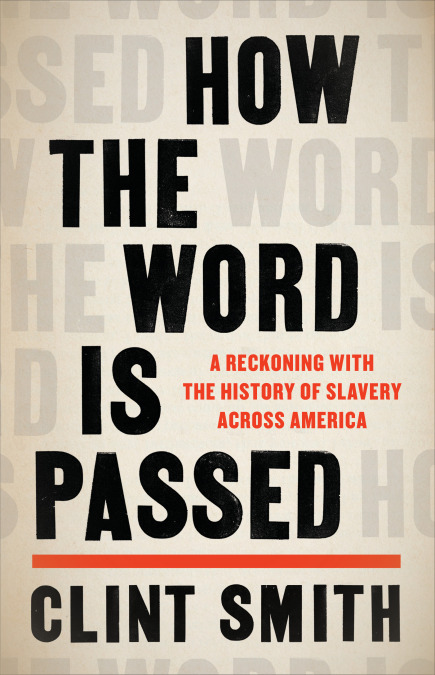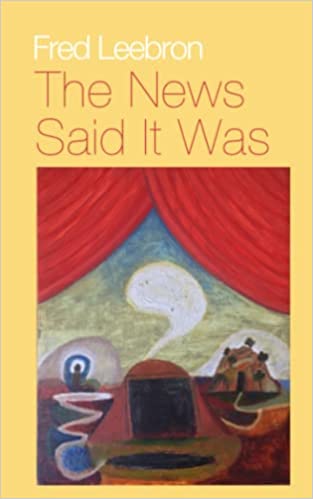Project Hail Mary by Andy Weir is a science fiction thriller about an energy-eating bacterial threat to life on Earth. A man awakens from a coma, realizes he’s on a spaceship, and then realizes he’s in a different solar system. He explores his ship and eventually begins to remember what happened and how he got involved in this project that is intended, apparently, as a last-ditch effort to save humanity from the effects of the diminishing energy of our sun. It takes a long time for him to understand how his trip is supposed to do that, but he’s learning as much as he can and he even encounters another ship, occupied by a being from another planet that has the same problem, and they share information. Although I hardly ever read science fiction, I was engaged in this story and in the narrator’s voice. There’s a bit too much science in this science fiction, although admittedly that lends an air of credibility to an otherwise outlandish tale.
How the Word is Passed: A Reckoning with the History of Slavery Across America by Clint Smith is a uniquely told story of slavery in America and its aftermath. Smith visits several sites around the country (and one in Senegal) that tell different pieces of the greater story. We start with Thomas Jefferson’s Monticello where Smith goes on the “slavery tour” and finds that the guide is honest and forthcoming about Jefferson’s slave ownership and his much-studied relationship with Sally Hemmings. This is a relatively recent development, as they used to hide information about Hemmings and spent little time on the fact that Jefferson was a slave owner. Smith visits plantations and prisons in the south and then takes a tour of old New York which is further enlightening. Smith is a poet and some of the language of the book is more flowery than one would expect for a history book, but that doesn’t detract in any way from the book’s readability.
Briefly, A Delicious Life by Nell Stevens is a book I reviewed for the New York Journal of Books. In 1838, the writer George Sand and her lover, the composer Frederic Chopin, arrive on the island of Mallorca with Sand’s two children in an attempt to escape the harsh Parisian winter for Chopin’s health. Things don’t go quite as planned. As if that weren’t a unique enough premise for a story—I did not know about the relationship between Sand and Chopin—it is told from the point of view of a ghost, a Mallorcan woman who died some three hundred years earlier. In fact, to the extent that there’s a plot here, the ghost is more interesting than Sand and Chopin, whose lives are more familiar, because she’s also telling the story of her own death while recounting Sand’s days in Mallorca. I gather that the author gleaned many of the details about Sand’s and Chopin’s stay on the island from Sand’s own book, A Winter in Mallorca.
The Grievers’ Group by Richard Wiley is a poignant story about grief. Cornelius, a writer in his seventies, has recently lost his wife, Yuki, to cancer. To cope with his grief—he also thinks he’s visited by her ghost, but the book, thankfully, doesn’t dwell much on this—he joins a therapy group of people who are also grieving lost loved ones. Even their therapist, who is a quirky Icelandic woman, is grieving for her mentor, and everyone’s stories are revealed over time. Meanwhile, Corny’s granddaughter also is having problems, having at age fourteen begun having sex with a handsome boy in her class at school. All of these tales have interesting twists and turns that lead to a satisfying conclusion.
Padre Raimundo’s Army and Other Stories, by Arthur Powers is a collection of short stories mostly set in Brazil by a former Peace Corps Volunteer who had been stationed there and later spent a long time in the country. The stories are eclectic, dealing a variety of subjects, and many are rather dark. One of the stories also appeared in Everywhere Stories: Short Fiction From a Small Planet, an anthology of international stories I edited.
The News Said It Was by Fred Leebron is a terrific short collection of fiction. Every piece is darkly imagined and every sentence is a gem. Leebron is brilliant. I won’t wait long to read this book again.






